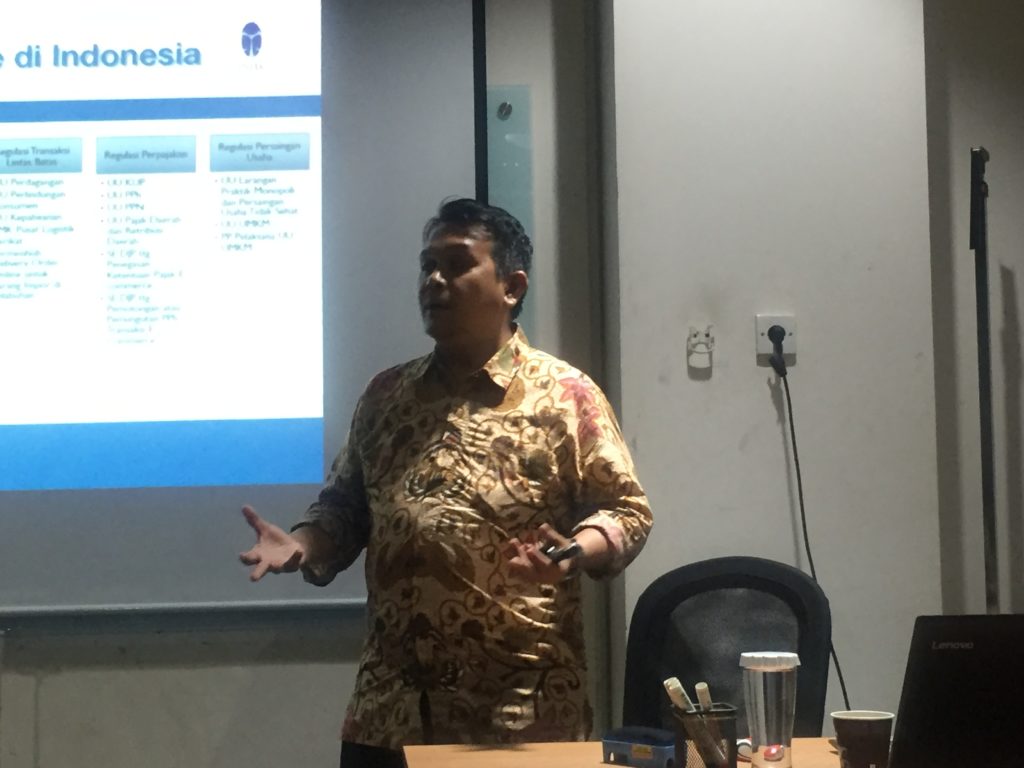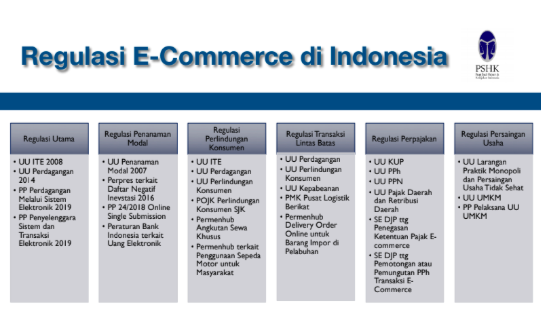The growth of e-commerce transactions in Indonesia reached USD 12.2 billion in 2018, making it one of the largest markets in Southeast Asia. As a response, the government has issued Presidential Decree number 74 year 2017 on e-commerce roadmap. However, there are issues yet to be covered in the roadmap. On Tuesday, 17 December 2019, The Center for Legal and Policy Studies (Pusat Studi Hukum dan Kebijakan or PSHK Indonesia) hosted another FKP event on the legal framework of e-commerce in Indonesia. M. Faiz Aziz (PSHK Indonesia) presented his study which was done in collaboration with Knowledge Sector Indonesia which focuses on 5 main aspects of e-commerce: investment, consumer protection, taxation, cross-border transactions, and business competition.
First, regarding investment in e-commerce, a common problem is the fact that foreign e-commerce companies are often not registered as a business entity in Indonesia. As a solution, Faiz suggested the implementation of effective management in international civil law.
Next, fraud, personal data protection, asymmetric information, and dispute resolutions are among the problems that are associated with consumer protection in e-commerce. As a solution, Faiz suggested the use of a seller deposit system, strengthening the settlement mechanism, and restrictions as well as sanctions for personal data misuse. Thirdly, in terms of taxes, it is still a common belief that e-commerce is not a tax object. In addition, tax avoidance by foreign e-commerce companies is also still rampant. Faiz believes that this requires more policy dissemination and socialization efforts to both businesses and consumers, and blocking transactions until foreign e-commerce companies create business entities in Indonesia.
On the topic of cross-border transactions, splitting one order into several shipments is a common practice to reduce the amount of taxes that an individual has to pay. This problem is addressed in the Minister of Finance regulation number 112/PMK.04/2018 which lowered the limit of the value of exemption from import duties on e-commerce items, from USD 100 to USD 75. This regulation is also aimed to increase revenue from import duties and improve Indonesia’s current account deficit.
Lastly, in regard to business competition, Faiz believed that the definition of e-commerce businesses should be reassessed based on the most relevant law in terms of sectoral distinctions. Mergers and acquisitions can also be an issue. In this regard, Faiz proposed the formulation of a regulation on extraterritorial disputes, to allow Business Competition Supervisory Commission (Komisi Pengawas Persaingan Usaha) to carry out law enforcement outside the country if it concerns national interest.
For the complete presentation and Q&A session, please refer to the video and materials provided.






